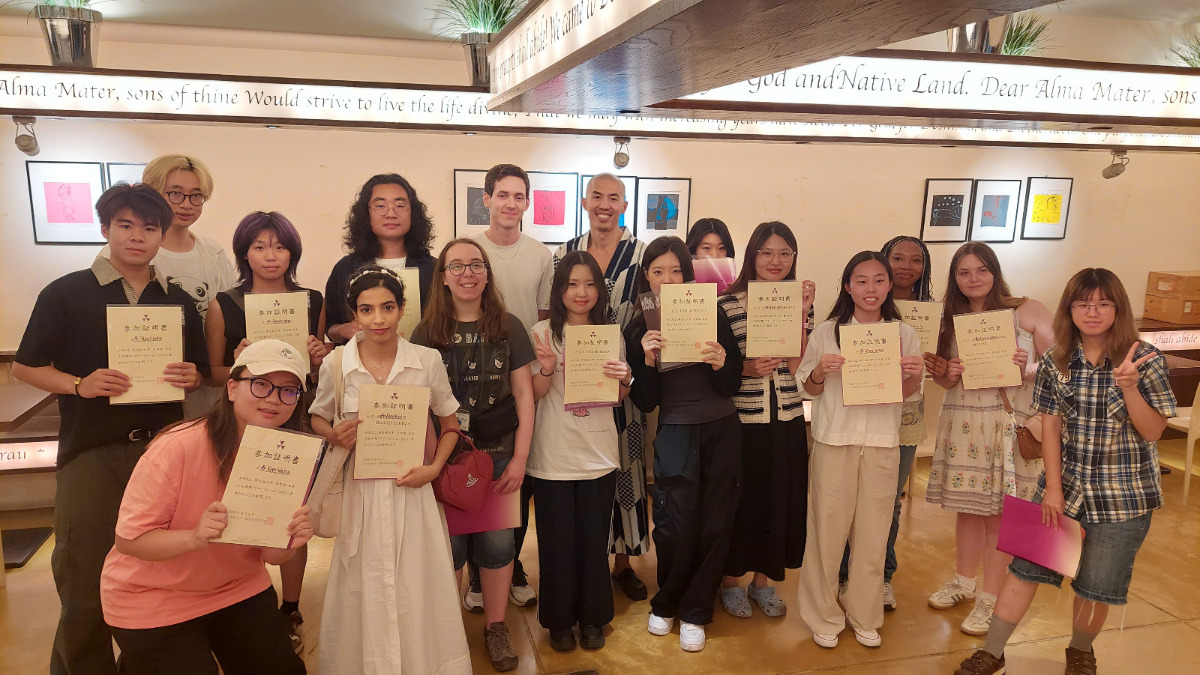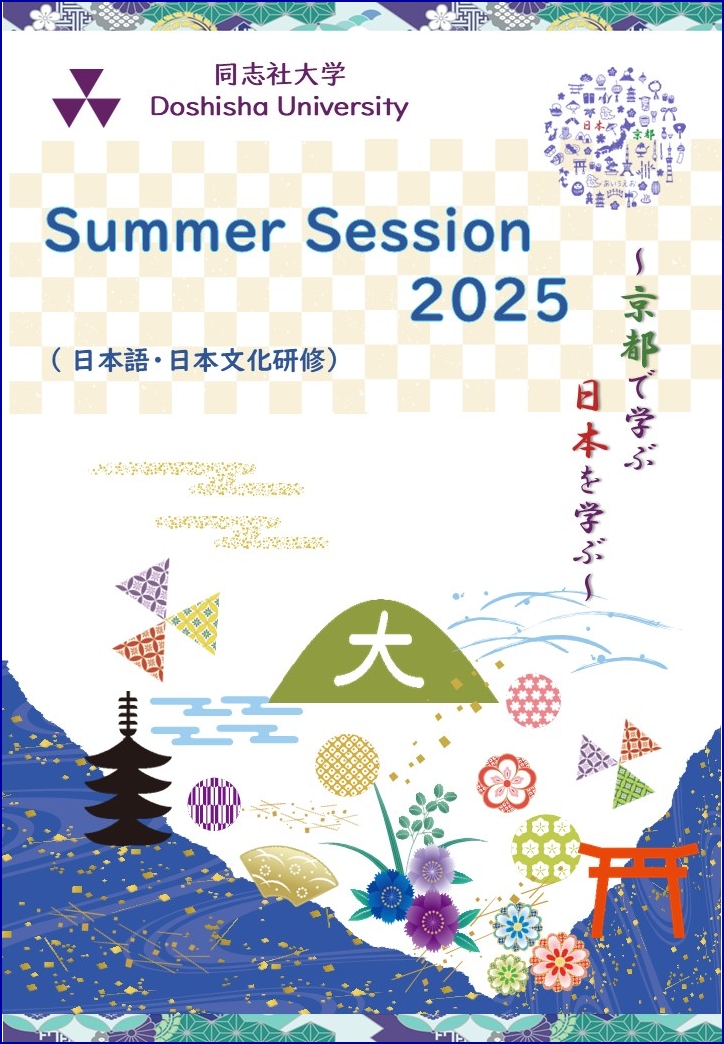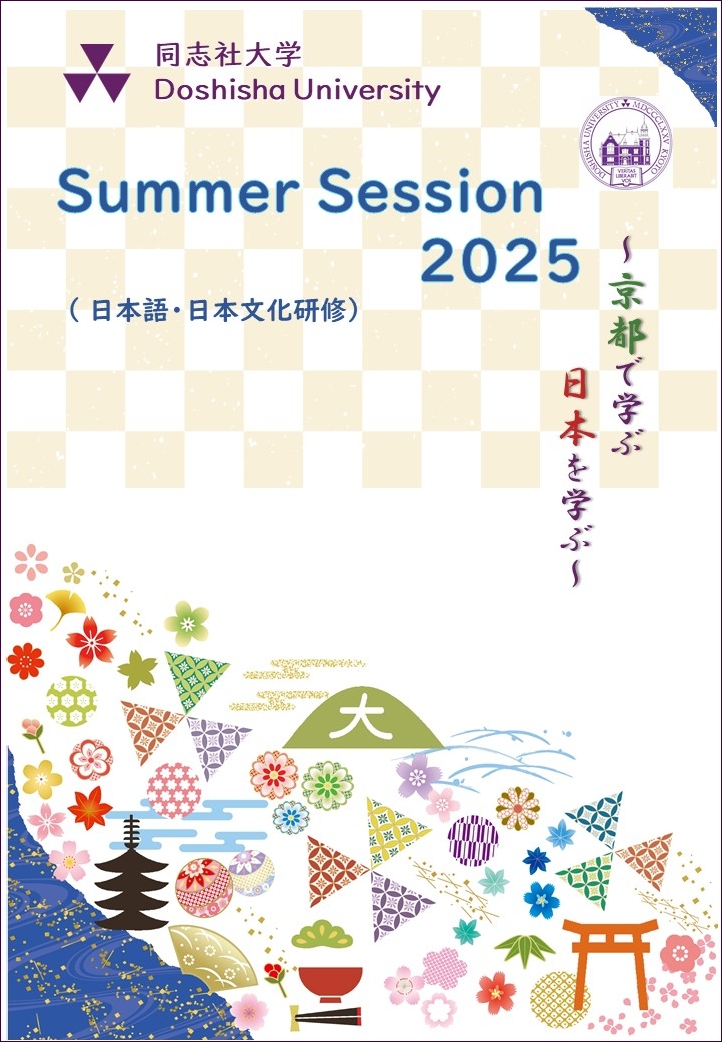Summer Session (Japanese Language and Cultural Studies)
Report: Doshisha Summer Session 2025

The Center for Global Education and Japanese Studies(CGJ) hosted“Doshisha Summer Session 2025” for four weeks, from July 8, 2025 to August 5. This year, there were 18 participants from Saudi Arabia, France, United States, United Kingdom, Korea, China, Hongkong, and Taiwan.
The Japanese language classes were divided into two levels, and lessons were conducted in the areas of grammar, reading comprehension, and oral expression. In addition, in the course "Traditional culture and daily life in Kyoto," ten guest speakers were invited to give lectures about Kyoto’s traditional culture, such as the Gion Festival and Nishijin weaving. The participants also participated in hands-on cultural experiences, including tea ceremony, Aikido, Noh, Zen meditation, Kimono, and Japanese food making.
During the period, more than 40 students from both Doshisha University and Doshisha Women's College of Liberal Arts participated in classes as volunteer study partners, joining in conversation practice and other activities.
In the second week of the program, a get-together session with study partners was organized. Participants and study partners made some small groups and discussed about what they would like to do during their stay in Japan. Then they made up a plan and carried them out outside of class hours. (For example, going to karaoke, eating sushi, and hanging out wearing yukata.)
On the final day, there was an opportunity for deepening what they learned and experienced during the program. Each participant selected topics of interest and gave presentations in Japanese followed by a discussion with study partners.
 Summer Session 2025 Handbook Cover
Summer Session 2025 Handbook Cover
We received positive feedback from the participants.
All participants said they would recommend the program to their friends and juniors, and 92% answered that they could achieve their goals for participating in the program. These responses clearly indicate a high level of satisfaction with this program.
The participants shared the following comments about the program as a whole: “It was a wonderful, once-in-a-lifetime experience.” “I learned a lot, and I am now inspired to study even more.” Some participants said that cultural exchange with study partners motivated them to learn Japanese more, indicating that our program served as an opportunity for growth for both participants and study partners.
We aim to improve the program content based on the feedback and provide a program that more accurately meets the needs of the participants.
Doshisha University Summer Session 2025 (A short-term Program on site)
The Center for Global Education and Japanese Studies at Doshisha University offers a program called “Summer Session”. It is a short-term program to study Japanese language and culture.
Participants will study Japanese intensively in small classes with experienced instructors. In addition, they will deepen their understanding of Japanese culture and society through lectures on Japanese culture and variety of cultural activities.
Doshisha volunteer students will participate in classes as study partners to support your Japanese language study.
Why don't you study in Kyoto, the center of Japanese culture, with students from all over the world?
Looking forward to a lot of application!
- Application Information for Summer Session 2025
Requirements
- Students who are enrolled in undergraduate or graduate school, or those who have graduated from college or university.
- Japanese Language proficiency level:Pre intermediate to Pre-advanced (JLPT N4 to N2 or equivalent)
※ Elementary and advanced (JLPT N1 equivalent) learners are not applicable to this program.
- Able to obtain a visa for their stay on their own if they need one.
※ Priority will be given to students from Doshisha's partner institutions in case the number of applicants exceeds the quota.
※ Applications from overseas are also welcomed.
Program Period
July 7th (Mon) – August 6th (Wed), 2025
Program Fees
250,000 JPY
Capacity
20 (Minimum number of participants:10)
Application Period
Application Instructions
- Apply online at the URL or QR code below.Doshisha University 2025 Summer Session Application Form

※ When you apply, the following documents must be uploaded;1) Photocopy of passport (page with photo)
2) Motivation Letter and Letter of Consent
- Admission Results (Late March)
- Payment: Registration is complete upon payment of program fee.
[Payment period of program fees]
Early April
| Contact |
Office of the Center for Global Education and Japanese Studies E-mail:ji-nbn@mail.doshisha.ac.jp |
|---|
